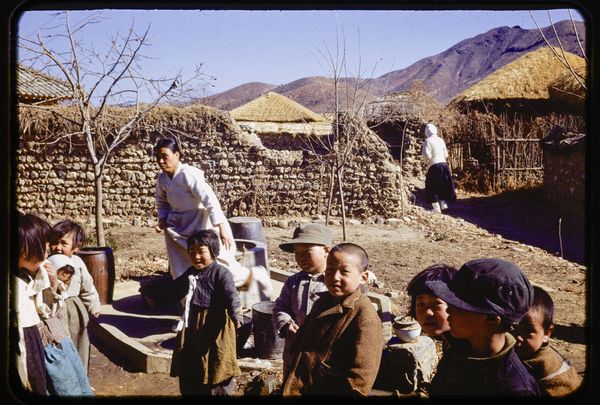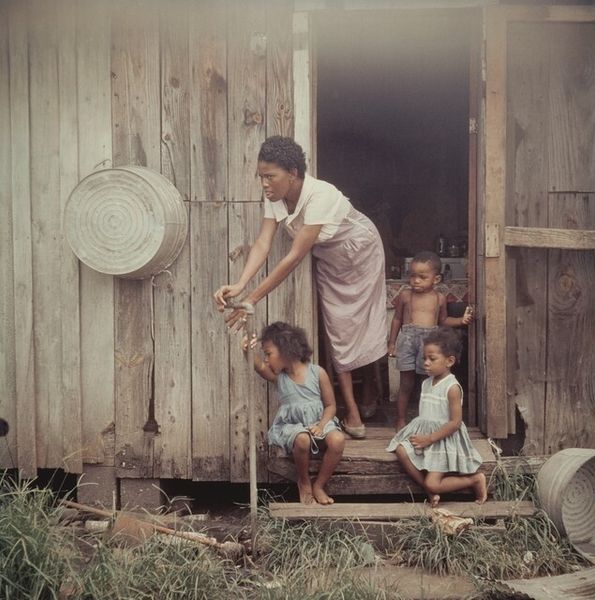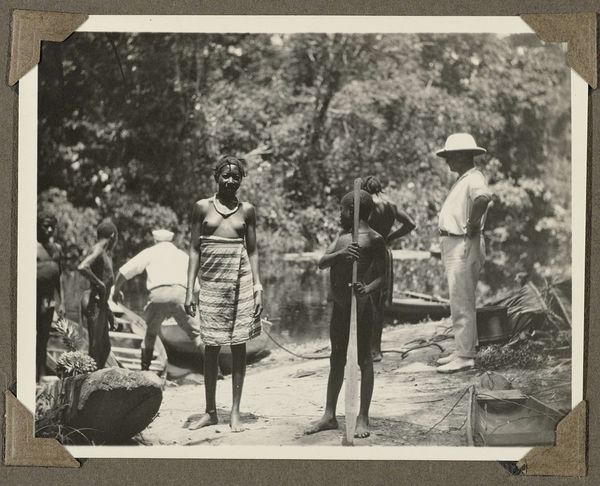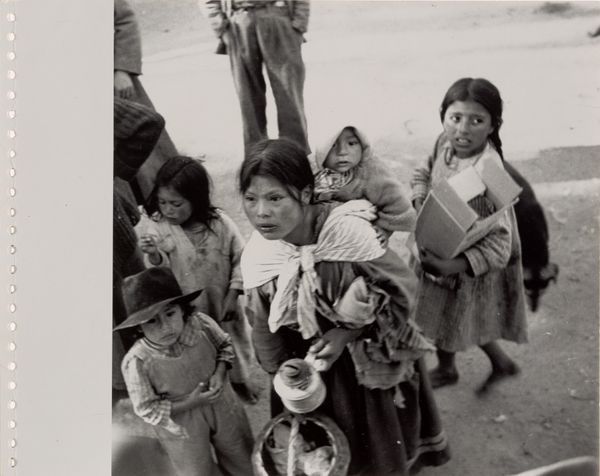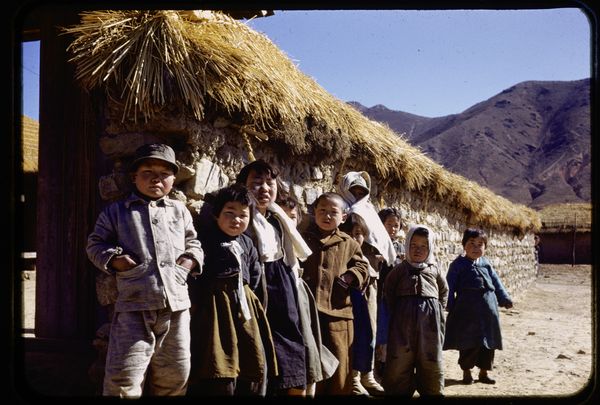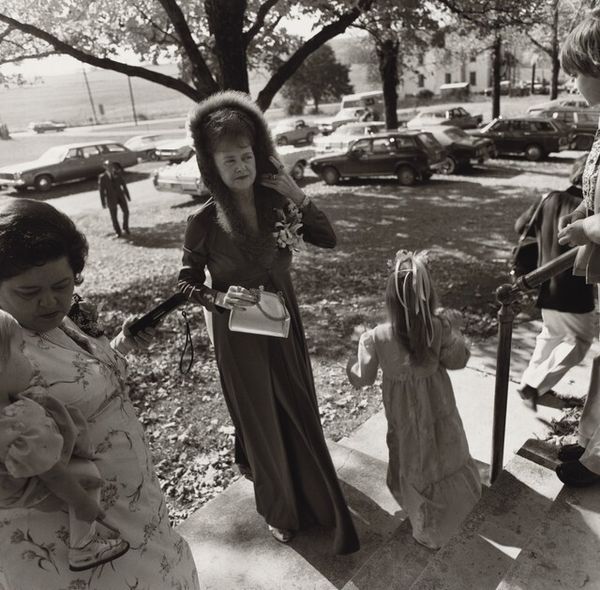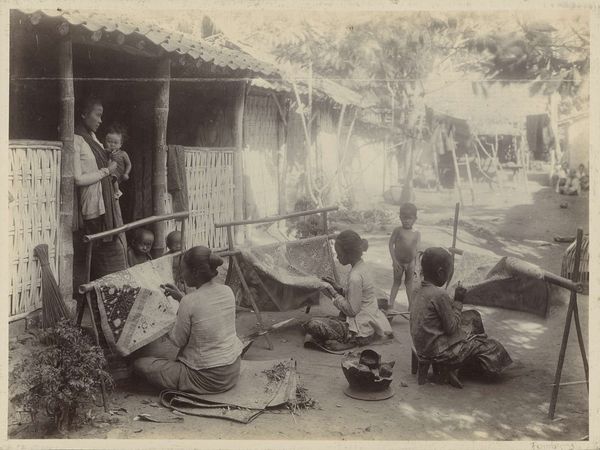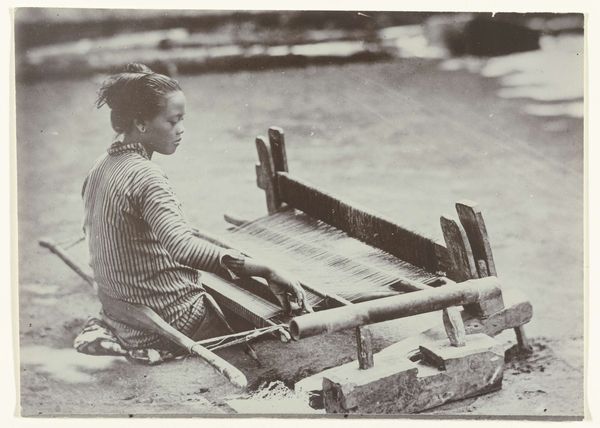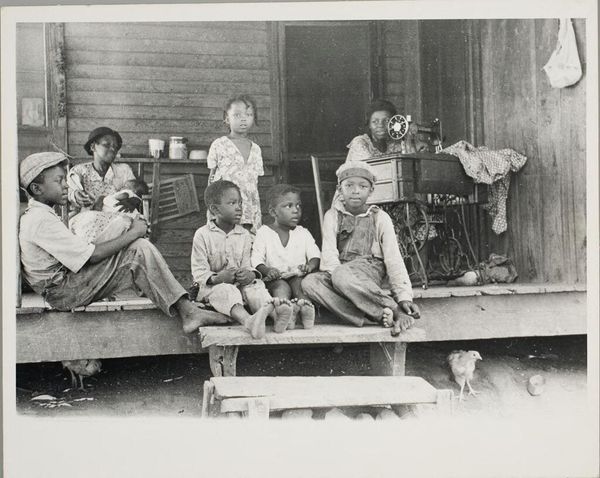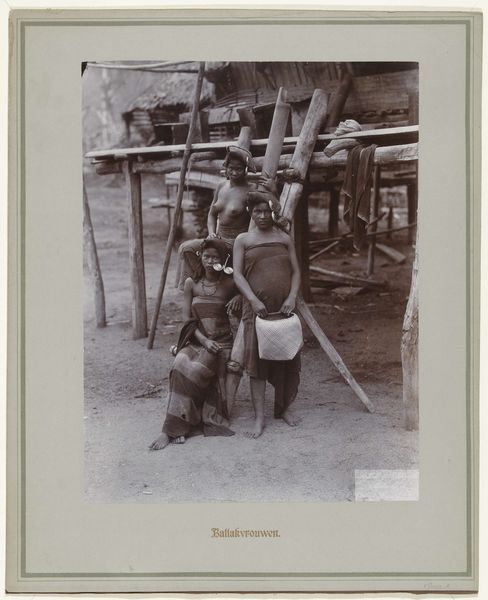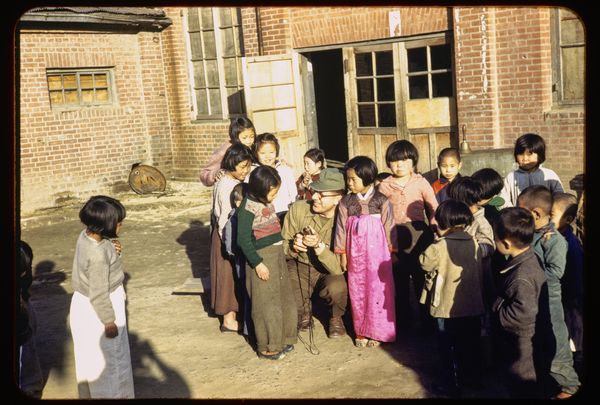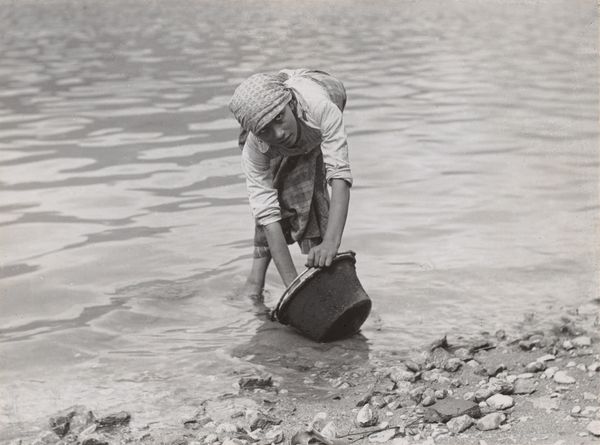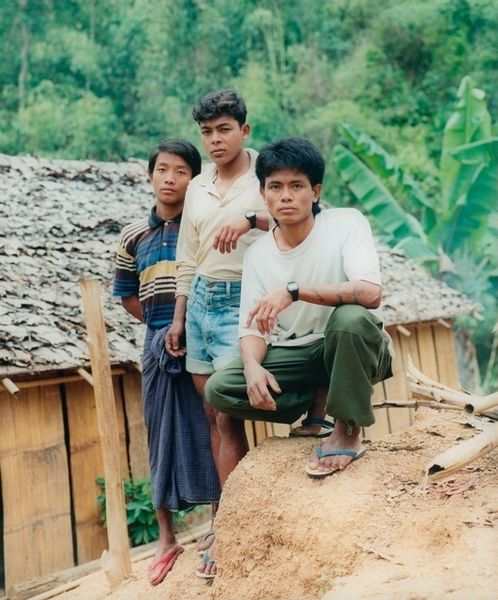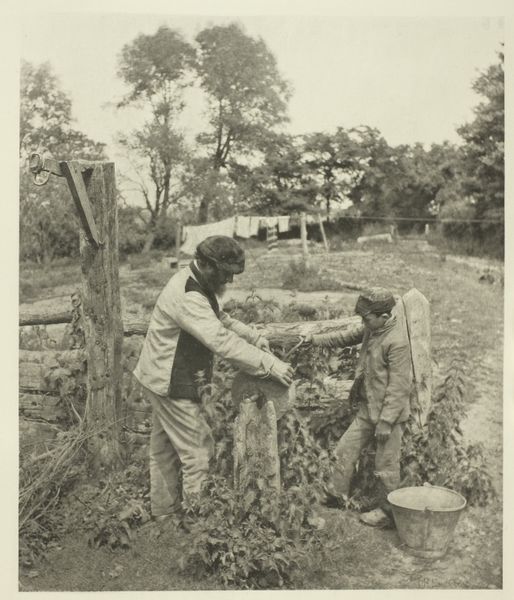
Dimensions: height 5 cm, width 5 cm
Copyright: Rijks Museum: Open Domain
Curator: Ah, here we have David Ketel’s “Korean Women Doing Laundry,” a photograph taken sometime between 1951 and 1953. It's quite striking, isn’t it? Editor: Yes, instantly evocative! The light seems to cradle everything here, softening the grit of the scene…the women almost glow. There’s something so timeless and intimate about it. But also a bit melancholic. Curator: Melancholic, yes, perhaps a whisper of that postwar reality. The photograph situates two women doing laundry in a stream that bisects what appears to be a village, probably somewhere in rural Korea. The war, and Korea's subsequent division, undeniably framed these everyday moments. We see these women performing this domestic chore, maybe a daily ritual, against this larger backdrop of upheaval and change. Editor: Exactly! It's essential to think about what washing clothes represents. This labor, so often invisible, is a constant, especially for women in communities facing such instability. Who is documenting this? What lens are we looking through? Is it romanticizing or revealing? And how much does the "orientalist" gaze of that era inform our interpretation? Curator: That’s a potent point, for sure. Ketel, with his lens, almost immortalizes these women, yet the camera also holds a certain distance. And despite that possible disconnect, I am still drawn to their faces. It’s the eye contact of the one, a sort of a silent challenge to the viewer. Like, 'Here I am. This is what I do, see me.’ Editor: Right! That gaze demands that we recognize their humanity beyond the socio-political narratives. Considering the landscape – the modest village structures, that somewhat out-of-place car in the left frame – adds to this mix of tradition and… well, something more imposed. Curator: Agreed, and it creates a fascinating dichotomy. A very strange juxtaposition if you consider the "post-impressionistic" feel of the picture; almost a painterly landscape despite the machinery on the side of the frame. This reminds me that so much can be hidden and revealed at the same time in a piece of artwork such as this. Editor: Absolutely. "Korean Women Doing Laundry" presents not just a picturesque tableau but a complicated slice of history, imbued with questions of gender, labor, representation, and survival. What a poignant piece. Curator: Indeed, and it leaves you pondering who gets to narrate the lives of others, doesn't it?
Comments
No comments
Be the first to comment and join the conversation on the ultimate creative platform.
